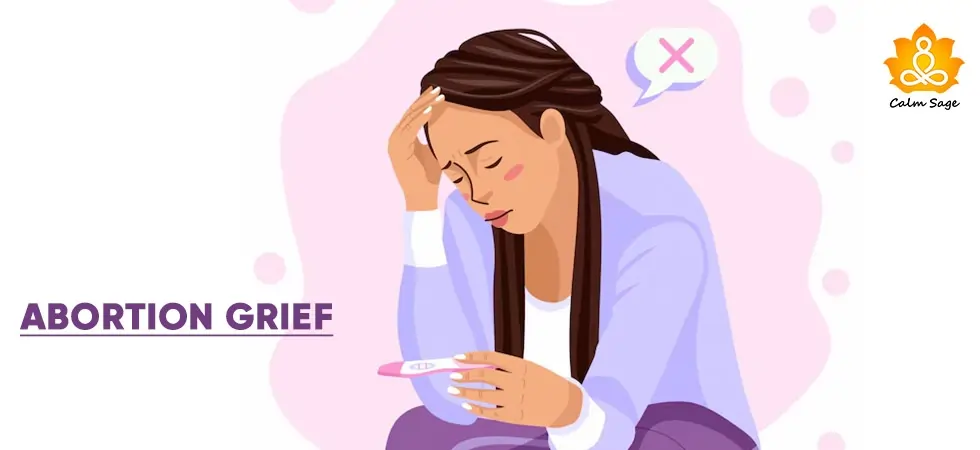Depression Recovery: A Guide To Understand Signs Of Recovery And Relapse Prevention

Depression is a hard pill to swallow especially when you lack support, but developing a positive mindset can catalyze your recovery phase. Many people struggling with depression really don’t know what troubles them or what makes them feel sad, some symptoms of depression are invisible, and so are the scars left behind.
Depression recovery is not visible to everyone; it’s a feeling that is innate from the inside. Recovering from depression cannot be the same for everyone. Since depression is a long-term illness; it takes a lot of time and effort to remove the symptoms entirely from the body and mind.
Similarly, signs of depression recovery can be slow and subtle, recognizing signs of depression recovery can help you reach the recovery milestones. If you’re currently fighting depression, know that you’re not alone and it’s high time to say goodbye to those devastating feelings and find a way to recover. This blog is a comprehensive guide to understanding the signs of depression recovery and how to prevent relapse.
| If you have not received a proper diagnosis or treatment for depression yet, connect with a mental health professional today |

Great for CBT Based therapists
-
$40/week, billed every 4 weeks
-
Therapy via messaging, phone, or live video chat
-
Specialization for CBT based Therapy
20% off your first month

Best for Treatment Plants
-
$60 to $90/week, billed every 4 weeks
-
Therapy via messaging, phone, or live video chat
-
Flexible cancellation at any time
$100 off your first month with code SPACE
The Importance of Tracking Your Symptoms During Treatment or Recovery
Depression treatment process is slow and subtle, it generally takes time for you to feel yourself again. The progress of depression recovery is slow which can make you question, “How do I know if I am getting better?” However, the fact is that the chances of relapse are higher in conditions like depression. Some people are able to fight depression in one go, meanwhile, some can struggle with depressive episodes again and again.
A research published by the American Psychiatric Association found that 50% of people diagnosed and treated for depression are not able to find complete recovery in the first go.
Around 80% of people who struggle with depression relapse at least 2-3 times. If these numbers scare you, calm down, one of the best ways to prevent relapse is to track the symptoms regularly. Tracking changes in mood, behaviors, and symptoms can help your mental health practitioner understand the severity and can help improve your treatment process.
Secondly, self-awareness is the key to understanding your progress status. Additionally, you must have gained valuable insights during therapy sessions, take the help of these insights, and keep tracking your symptoms to seek help sooner and reduce the chances of relapse.
Signs of Depression Recovery
Below listed are some of the important and noticeable signs of depression recovery to understand if your depression is getting better or not:
1. Improving symptoms:
If you’ll constantly track your symptoms you’ll be able to notice the improvement or progress in your symptoms. Watch out if you often feel angry or sad. Think about your lifestyle changes, have they improved? Look for the improvement signs with the help of symptoms or a mood tracker.
2. Improved quality of life:
When an individual moves towards recovery, their overall functioning improves. They might get up easily from the bed, they might have improved productivity at work, or they might love to socialize with loved ones or friends again. In order to track this, set goals on your phone and keep track of your improvements.
3. Limited Relapses:
One of the important ways to overcome depression is to prevent relapses. If you find your symptoms have reduced over time that might be a strong indicator of making progress and preventing relapses. In order to succeed more, you can make changes in your lifestyle, and focus more on your mental and physical wellbeing for overall improvement. Click below to understand more about depression relapse:
Depression Relapse: What is It, Signs, Types, and More
How Do I Know If My Depression Is Getting Better?
If you want to track your progress and understand if you’re getting out of depression or not, read the below-listed strategies:
1. Maintain a journal:
Journaling is the best way to vent out your negative emotions and build self-confidence. Journaling can also help you explore your emotions, track your symptoms, and manage your feelings. You can also add your self-help strategies that work for you. Additionally, also note how your experiences before and after to identify your root causes. You can also share a journal with your mental health provider to try a new treatment approach.
2. Attend questionnaires:
There are various questionnaires available on the internet to track your mood, symptoms, emotions, and more. For example, you can try Beck’s depression inventory (BDI) to explore your feelings. You can also keep track of scores or results to track your progress. Such questionnaires can also be used for checking if your medications or therapy are working or not.
3. Monitor medication:
In the initial days of therapy, your therapist is likely to prescribe you a higher dose of antidepressants. Therefore, always consume your prescribed medications on time after checking their side effects. As you might begin to show progress after some days, your therapist is likely to reduce the doses. Herein, look for relapse signs, side effects, and withdrawal effects to track your progress. Additionally, during such periods, maintain a day and night symptom tracker to keep your focus intact on the recovery phase.
How to Check Depression Relapse?
Depression is a long-term mental health condition with a 50-70% chance of relapse. A general period of depression relapse is noted to be 16 to 20 weeks after the end of therapy sessions. Below listed are some of the important signs of depression relapse to help you determine the recurrence of depression after therapy or medication discontinuation:
- Brain fog
- Persistent low and sad mood
- Changes in sleep and eating pattern
- Loss of interest
- Irritability
- Social withdrawal
- Weight loss or gain
- Fatigue
- Suicidal thoughts
How to Maintain Focus on Depression Recovery?
Below listed are quick self-help tips to maintain your focus intact on depression recovery:
- Do not compare your depression and symptoms with others.
- Communicate your feelings with your loved ones to seek support.
- Think about recovering from depression as you would try to recover from a physical illness.
- Practice kindness and compassion throughout the journey.
- Practice the 5-4-3-2-1 grounding technique for gloomy days.
- Stay patient and hopeful throughout to build resilience.
- Join a support group and learn from other’s
Takeaway: Prepare Your Body and Mind for the Recovery
As I mentioned above, having a recovery mindset catalyzes the process. During therapy sessions, you must have gained insights into the root causes. In order to feel yourself again, it’s important to rebuild self-worth again. If your current treatment allows, prepare your body and mind for recovery.
Attend therapy sessions on time, take prescribed medications regularly, and make lifestyle changes that can help you recover faster. If you’re currently feeling okay but not ready for recovery, communicate your needs to your mental health provider.
I hope this blog helps you understand what recovery from depression looks like and how to maintain your recovery progress.
For more such content, connect with us through all social media platforms.
Thanks for reading!




















